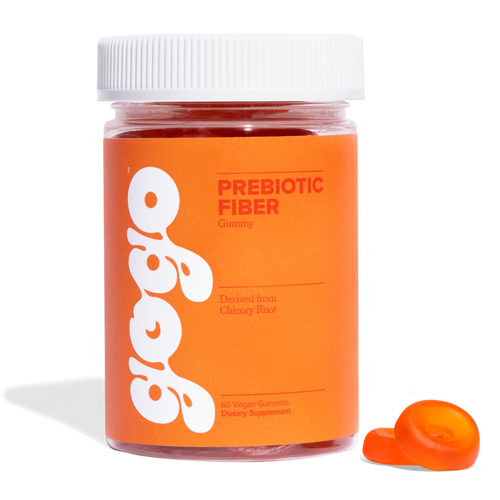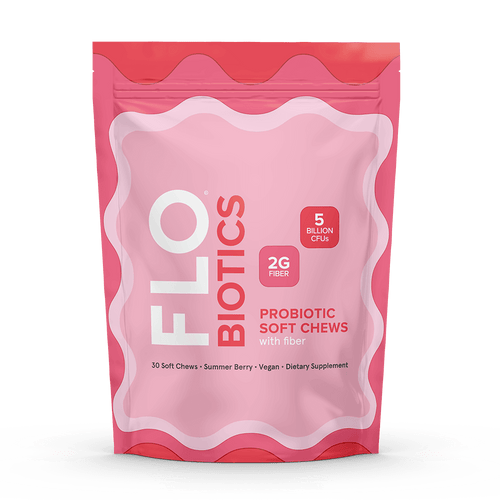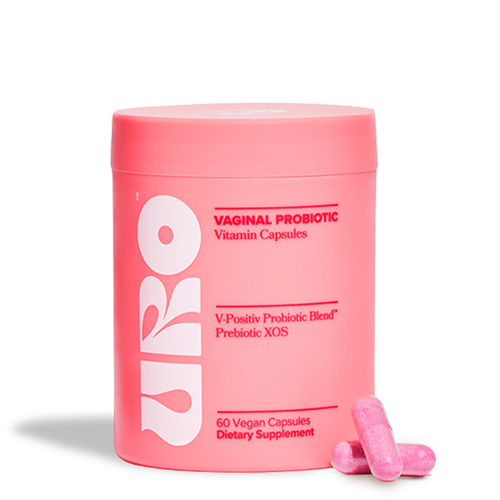No matter what differentiates you, there’s always something you can bond over with another woman: having weird period symptoms. From swollen breasts to dizzying mood swings, there’s silent solidarity within the ovarian community as we survive our monthly visitor—and all of her baggage.
Over time, we’ve gotten to know the weird signs our period is coming, and while it may seem like you’re the only one who experiences PMS nausea or period poops, you’re much less alone than you may think. For this piece, we asked 50 women, “what's your weirdest period symptom, and how do you deal with it?” Here are the most notable responses—equal parts liberating, humiliating, and everything in between.
Flu-like Symptoms Before Menstruation
“I always get flu-like symptoms. It’s like a guaranteed cold every month. I try to time it and take as much vitamin C as possible beforehand.”
“I basically get the flu right before I bleed. I go to sleep at 6pm and sleep through the night.”
Known as the “period cold” or “period flu,” these sickness symptoms usually occur between ovulation and the start of your period. Having a compromised immune system and sudden surge of ovarian hormones (estrogen & progesterone) are to blame. Staying hydrated, eating nourishing foods, and exercising regularly can help you feel your healthiest.
Menstrual Migraines & Hormone Headaches
“I get some pretty gnarly headaches. I need to start icing my head a few days before and make sure my hair is washed.”
“I get a 2-day migraine once a month. If I don’t take my prescribed migraine meds within an hour of feeling that first temple pain, I’m done for.”
A menstrual migraine AKA hormone headache is a pretty debilitating (and unfortunately common) PMS symptom. About 12% of Americans experience migraines and the majority are women, with at least 60% having observed a correlation between those headaches and their cycle.
There are many types of prescription medications (triptans, rimegepant, etc.), as well as over-the-counter anti-inflammatory medications that may help. You might also lean into relaxation techniques, learning your triggers (oftentimes sugar, caffeine & alcohol pair up with hormone spikes to produce the world’s worst headache), keeping blood sugar levels up by eating small, frequent snacks, and avoiding too much stress before and during your period.
Vivid Dreams During Your Period
“I get incredibly vivid dreams, which always mess with my sleep. Sometimes they’re so vivid, I’ll wake myself up from auditory hallucinations.”
Vivid dreams and sleep disturbance are both commonly experienced during PMS. The insomnia due to falling levels of estrogen and progesterone is usually accompanied by dreams so immersive, they can feel like very real nightmares.
To combat this, it’s important to limit caffeine, alcohol, and screen time (blue light) before bedtime. Try an elevated self-care routine during menstruation week. Have your last caffeinated beverage before 1pm, and engage in peaceful activities like reading or yoga to wind down before you sleep. A few drops of lavender into your humidifier or diffuser might serve as a nice added bonus, and a mug of sleepytime tea is always a good idea.
PMS Snack Cravings & Endless Appetite
“I get a HUGE appetite and start eating denser foods, incorporating more rice and sweet potatoes into my meals during that time of the month.”
“Voracious hunger. I eat like a hippopotamus”
“I crave very specific foods 1-2 days before my period, and I HAVE to have it. No other options.”
“I wake up in the middle of the night with an extremely strong craving for either steak or cookies—and I need to satisfy that craving ASAP.”
“I eat predominantly plant-based, but when I’m PMSing, I get an intense craving for red meat and end up eating it at least twice.”
While it may seem odd, this PMS symptom can be explained by your body’s innate need to replace the iron it loses during heavy bleeding. You could also experience iron deficiency anemia, making you feel weaker and fatigued. Taking iron supplements or eating iron rich foods like red meat, spinach, legumes, pumpkin seeds, and quinoa can be helpful.
An increase in appetite is common before a menstrual period, often leading to compulsive eating. Never guilt yourself: occasional overeating is not usually a cause for concern and it’s important to honor your body's needs. Respecting your hunger and eating whole foods, including healthy carbs, will help expel excess hormones and get your body back in balance.
As for the sweet cravings, drops in serotonin during your period can trigger cravings for simple carbs & sugars, because that’s exactly what the body uses to make serotonin. "If cortisol is high and serotonin is low, you'll seek carbs and fats, but really heavy duty on the simple carbs -- sugar-based sweets like chocolate bars," Peeke says.
Red meat cravings before your period indicates that your body is proactively preparing for iron depletion during menstruation. So smart! So evolutionarily sound! Heme iron is abundant in red meat, and happens to be a form of iron that we can more efficiently absorb. If you prefer a diet without red meat, taking iron supplements or eating iron-rich plant-based foods like spinach, legumes, pumpkin seeds, and quinoa can be helpful.
PMS Nausea Is More Common Than You Might Think
“My mom used to have to keep puke bags in the car because I would throw up on day one of my period every single month—usually on the way to school.”
“I get so nauseous… I have to lay down and put something cold on my head”
A hormone called prostaglandin comes into play during your period, and when it circulates, it can sometimes cause nausea and vomiting (among other symptoms). Additionally, if your period cramps are particularly painful (which might be an indication of dysmenorrhea), that pain can cause nausea and vomiting.
To help combat the nausea, try sticking to a bland diet, and add some ginger chews or ginger tea into the mix. Peppermint tea has also been shown to help settle the stomach, but if none of that helps, try an antacid. As always, make sure to drink plenty of water to help prevent dehydration caused by vomiting.
Digestive Issues That Come With Your Period
“Period poops, which are so severe and embarrassing. Seriously, what even are period poops?”
“I get SO constipated leading up to my period… and then once I start bleeding I’m, like, fighting for my life with the least solid poops of all time. I still haven’t figured out how to fix it.”
To put it plainly, having diarrhea during your period is a woman’s rite of passage. Cramps from the uterus lining shedding creates a lot of movement to the intestines, while fatty acids like prostaglandins begin to relax the smooth muscle tissues inside your uterus and bowels. Try to reframe it as a detox and remember to drink your water—diarrhea can often lead to dehydration.
Constipation before menstruation is also a common issue. It’s as if the pendulum swings too far one way before your period, and too far the other way during your period. Some experts believe increased progesterone levels can lead to constipation, while others blame higher estrogen levels. Regardless of which ovarian hormone is the culprit, pre-period constipation is a very real thing, and it’s important to up your fiber intake and move your body regularly on the days leading up to your period.
Big Boobs & Breast Tenderness Before Menstruation
“My boobs practically double in size, which is amazing in theory, but they also hurt quite a bit since they’re so tight and swollen.”
“My boobs look SO GOOD right before my period. Like, SOOOOOOO good.”
The sore ache of breast tenderness can begin around two weeks before your period, bringing along some nagging discomfort. For the itty bitty titty committee, it can be a small price to pay once you see the sudden umph in your curves, but don’t get too excited— your boobs tend to deflate and receive pressure once your period begins.
Period Arousal & Elevated Horniness
“I’m hornier than ever, which is so weird since it’s not like I’m ovulating?”
Feeling extra aroused in the days leading up to and during your period is more common than you think. While ovulation is the mid-cycle time of high fertility, during which your body is biologically wired to procreate, there isn’t much scientific research to explain period horniness. If you still choose to (or need to!) indulge, more power to you! There are plenty of ways to practice period sex safely.
Extreme Fatigue Before & During Your Period
“I experience extreme fatigue and even end up using sick time at work so that I can rest and recover.”
While it’d be ideal for us all to have extra period PTO, it’s unfortunately not always the case. Feeling tired before and during your period is an incredibly common symptom, though some of us may experience more intense fatigue than others. During this portion of your cycle, levels of serotonin tend to decline with your estrogen, accompanied with lower levels or iron and disturbed sleep. Adhering to a strict sleeping schedule, staying hydrated, eating balanced meals, and gentle exercise can all help alleviate some of the period fatigue.
Auditory Stimulation Sensitivities During Menstruation
“For some reason I feel an irritation to noise, as if I’m suddenly hypersensitive. I try to limit stimulation when I’m bleeding, my social life basically goes dormant.”
Ever heard of a silent migraine? During menstruation, you might experience migraine-related symptoms without ever getting the actual headache. These symptoms include increased sensitivity to odor, light, or sound, as well as vomiting, poor concentration, and sweating. Supplements like magnesium, co-enzyme Q10, and vitamin b12 can help you cope, alongside hormone-balancing foods and supplements like FLO PMS Relief.
Leg Cramps & Anal Cramps Can Accompany Your Period
“I tend to feel sharp pains, particularly in my butt. Yoga and stretching helps!”
“Excruciating leg cramps… they’re the reason I got on birth control.”
Though it’s not a commonly discussed symptom, butt cramps during your period are more common than you may think. Our very own medical advisor, Dr. Shepherd, explains the reason for anal cramps during your period here. Essentially, prostaglandins make your anal area more sensitive during your period, leading to contractions of the rectal tissue and cramping. This is also to blame for those infamous period poops! Relaxing your muscles through a bath, massage, or gentle stretching can be effective in alleviating the extra tension.
While mild leg cramping can happen from period cramps “spreading” through the body, more extreme leg pain might indicate endometriosis. While the research is ongoing, this leg pain is most likely attributed to endometriosis of the sciatic nerve, which happens to be the longest nerve in the human body, running from the lower back down to your heels. Talk to your doctor if you feel excruciating leg pain during your period—it might be your body trying to tell you something’s not quite right.
Excessive Sweating Related To Your Period
“I get extra sweaty! I make sure to always have deodorant in my bag.”
Waking up in a pool of sweat during your period is simply part of the female experience. Night sweats are due to the hormonal fluctuation that affects the hypothalamus, responsible for regulating internal body temperature. Opting for lightweight and breathable clothing & bedding, keeping the temperature in your home cool, and limiting triggers like alcohol, caffeine, and spicy foods can help you through it.
Heightened Allergies During Your Cycle
“I always have severe insomnia and increased allergies, so I use chamomile tea and Claritin to survive.”
Allergy season is annoying for anyone, but dealing with allergies on your period is next-level. Pollen triggers an inflammatory process your body overreacts to, and with your immune system being suppressed after ovulation, this is a pretty lethal combination. You're more inflamed because you are about to start your period, so your allergies worsen, aggravating the body. Taking seasonal allergy meds a little earlier than usual, enjoying a spoonful of local honey each morning, and checking the pollen count in your area during the week of your period can help.
Hormonal Acne & Period Breakouts
“I get the same pimple in the same spot every single month a few days before my period starts.”
One of the more common—and definitely annoying—symptoms of PMS is acne. Hormone fluctuations throughout your menstrual cycle, combined with the stress of other PMS symptoms, can easily affect the amount of oil the skin secretes. Too much of these oily secretions can clog up the pores and trigger acne flare-ups. These breakouts usually stick to the same spots on your face: chin, jawline, lower cheeks, even neck & back. Stick to your skincare routine, change your pillowcase & towels often, but understand that it’s not your fault, and it probably won’t be solved with topicals alone. Your best bet here is hormone-balancing foods & supplements.
Vertigo as a PMS Symptom
“Vertigo!!! I basically have to lay down and not move.”
Vertigo is a type of dizziness that makes you feel like you, or everything surrounding you, is spinning. Surprise, surprise—this dizziness is probably caused by an estrogen spike directly before menstruation. Staying super hydrated, getting enough sleep, moving your body regularly and eating a balanced diet might help, but there are a few other causes to look out for. One or more of the following before your period might contribute to pre-period dizziness: iron deficiency anemia, low blood pressure, low blood sugar, and/or migraines. Talk to your doctor to get a better read on whether or not any of these might be a concern.
Sadness, Anger & Depression Before Your Period
“I get super depressed for a day before my period comes. Just about every little thing makes me cry. It happens every single month, and I never remember that it’s not “real.” It feels like my world is ending.”
First of all, your feelings are very much real—even if they are caused by hormone spikes rather than external factors. Mood swings are one of the most-discussed PMS symptoms, but for some, it feels much lower than the average irritability description. Sadness and depression could indicate something more intense than regular PMS, like PMDD. Fluctuating hormones may also cause symptoms of existing mental health conditions to heighten. When you feel that low, it’s difficult to bring logic into the scene—that’s why you might not realize the mood is an indication that you’ll be bleeding soon, despite this symptom taking over your brain once a month. Please, please talk to your doctor or gynecologist about severe mood swings, or similar brain chemistry-related symptoms—and confide in trusted friends and family members so they can be aware and potentially offer help & support in non-medical ways.











